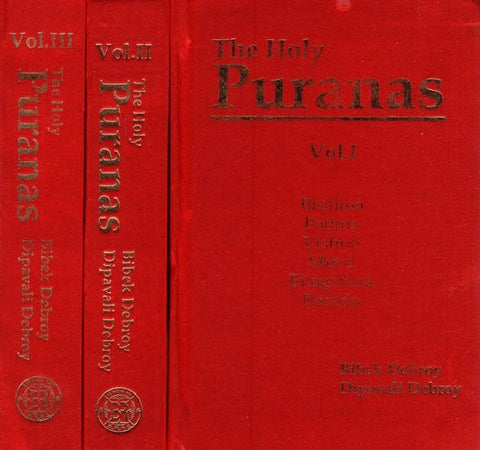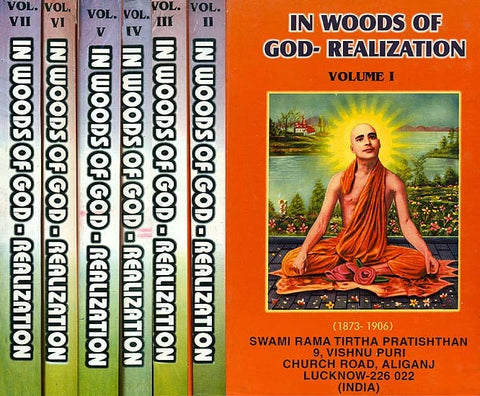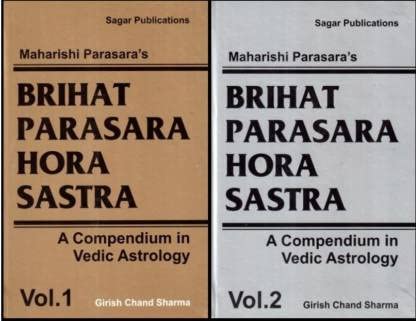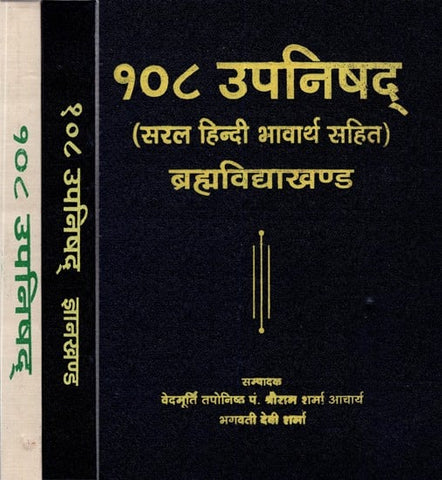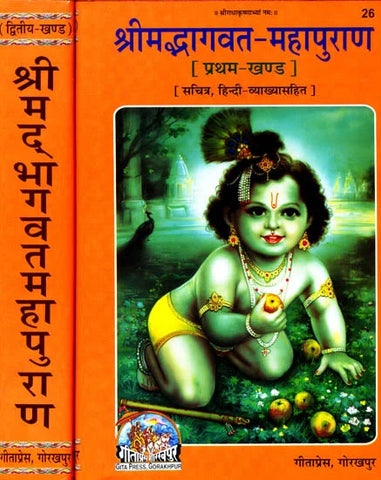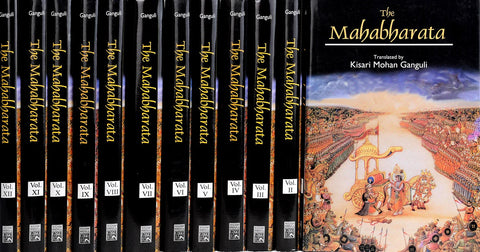Your cart is empty now.
In the First Volume, at the beginning of this series, in the context of Ma's maternal home, there is a description of the Adiguru of this lineage. This Adiguru was established and reputed in the form of Jagatguru. In this con-nection is discussed the subject of the Svarupa of Jagatguru attained by sadhana and his nitya Svarupa which is in Svamool. That which is the objective of a line of sadhana, that is the mool of that line. So there are infinite mools for infinite lines of sadhana. But each one of all these mools is in Svamool, which is the Svarupa of Ma. In other words, in the form of objective of each sadhana, it is Ma only. Ma, of course, says, where is Bhagavan not? Where is He not and when is He not and in what is He not? It is Bhagavan alone. So in the form of all kriyas too, it is Bhagavan. Therefore, Ma's kriya is Ma only, Svakriya, She Herself in the form of kriya.
This Svakriya Svamool Svarupa Ma—in connection with the revelation of this objective in the kingdom of jiva, there is a special mention about the building of spiritual life following the Shastric injunctions in the context of the daily routine of kriya in the grihastashram of Ma's maternal home. Ma speaks in definite terms—where is the possibility of building ht spiritual life without Shastra as its base. As an ideal, is the reverence-attracting personality of Rama-kanta Bhattacharya, father of Didima (Ma's mother).
A sadhaka can make progress on the path towards his objective only through Guru Shakti. While proceeding along that path as directed by the Guru, the root of Kartritva (the sense of being the doer) of the sadhaka wanes through Guru Shakti, following the awakening of abhava, leading the sadhana to where it takes place by itself. This, indeed, means uniting in the current of Svabhava. This is that current which, like a river, unites with the sea, carries forward the Sadhaka towards revelation of his objective. Here the objective pertains to a line of sadhana, but in Svamool, mools of all lines of sadhana are there.
THE TERM SVAKRIYA SVARASAMRITA
Bhagavan, the Supreme Ultimate Svarupa, is manifest-unmani-fest. The kriya in the manifest form, which is called lila—this is He Himself in the form of this kriya. And this, indeed, is His Svakriya. The ecstatic joy of lila, this rasa itself is He Himself—Svarasa. Again, He who is manifest, He Himself is unmanifest amrita----`Tripadashamritang divi', i.e., three quarters amrita, which is (sva) amrita (amrita itself).
In other words, He Himself is in the form of lila in the context of His birth and kriya as action, etc. He Himself is in exultation in His own joy. He Himself is eternally unmanifest, where the question of manifest-unmanifest has no place—THAT alone. This, which is the Svarupa of Ma, this itself is this Grantha—Svakriya Svaras-aimita. That is way Ma says, "When ordered by the Guru, this Grantha, as Attainment Itself of Supreme Wealth, has to be read again and again. That, in the form of akshara (letter of alphabet), there is anakshara (absence of akshara), absence of sound—this truth too will be granted at the appropriate stage. Again, akshard (Supreme Being), the immutable He Himself is the sound. And that this akshara is beyond sound as well—the revelation of this too will be gifted. The form of this Grantha is Bhagavan Himself, who in the form of Akshara Brahman, does, indeed, give Himself to Himself".
That is when akshara is considered as letter, the distinctive ideas carried by words, which are letters, will lead to absence of letters, (anakshara), beyond expression, beyond sound. Also, when akshara is considered as Supreme Being, i.e., Akshara Brahman, He reveals as sound„Chabda Brahman, leading to beyond sound as well.
THE SERIES SVAKRIYA SVARASAMRITIWA-ITS DISTINCTIVE CHARACTERISTIC
This Grantha is, in reality, Ma Herself in the form of sound, letters, ideas and language. About the identity of the speaker and the spoken word, in Ma's words : "Where you utter the word Bhagavan, the akshara that is immutable, there all vigrahas in entirety are His reality. Himself, He alone. Avangmanoshogochar (beyond mind and speech)--this word, from where does it originate ? That Parabrahman—the word Brahman, from where does it originate, do you know ? The moment one is established in Brahman, at that very moment, there has to take place by itself the utterance of the word Brahman in the form of sound. But where kriya pertaining to Svamool is concerned, this hearing takes place in the form of sound in identity with the Self. Therefore, only that much is there as it is in manifest ; in unmanifest, where can there be sound—what are you going to say?'"
From these words of Ma, the state and the word revealing that state are identical, i.e., immediately with the revelation of that state, the sadhaka will realize himself in identity with the word which is indicative of that state. That is why Ma is saying, 'The moment one is established in Brahman, at that very moment there has to take place by itself the utterance of the word Brahman in the form of sound.' This is the word revealing the Brahmi state which is the form of attainment that had not been attained before by the sadhaka. In the case of Ma, however, no question arises about attainment of what had not been attained before. All kriyas in entirety, including empirical dealings too, the play of Sadhana, etc., all, indeed, are Svamoolkriya. So 'where kriya pertaining to Svamool is concerned, this hearing takes place in the form of sound in identity with the Self'. That is, Ma Herself is in the form of sound in identity with the speaker and listener. So Ma Herself is this Grantha.
Ma was once asked, as follows, about the Svarupa of this language of Hers : "Since we are with mind—may be someone has advanced a little—we talk about that aspect through this mind of ours. But the word of yours, how are we going to comprehend ?"
Ma : "The particular appearance that is allowed to be com-prehended in the context of any particular place, He whose word it is, He allows comprehension.' From the sentence, 'He whose word it is, He allows comprehension', one has to understand that these words and the Reality are in identity. Then only there can be `allowing Himself to be comprehended through words'.
Delivery and Shipping Policy
- INTERNATIONAL SHIPPING
- Rs.1000-1100/kg
- ESTD. Delivery Time: 2-3 weeks (depending on location)
- Bubble Wrapped with Extra Padding
- NATIONAL SHIPPING
- NCR: Rs. 30/half kg
- Standard: Rs. 80/half kg
- Express shipments also available on Request
- ESTD. Delivery Time: Ranging from 1-4 days up to 7 business days (Depending on your choice of Delivery)
- TRACKING
- All orders; national or international, will be provided with a Tracking ID to check the status of their respective orders
- Depending on the Shipping Service, Tracking ID may be used on their respective tracking portals
Frequently Asked Questions (FAQs)
Domestic Shipping: 3-4 Days (after shipping)
International Shipping: 1-2 weeks (based on your location)
You will receive an email once your order has been shipped or you can email us if you didn't receive tracking details (info@mlbd.co.in)
Every book that we sell is the latest edition except all the rare books
Yes, we do provide free shipping, only on domestic orders (within India) above Rs.1500
















